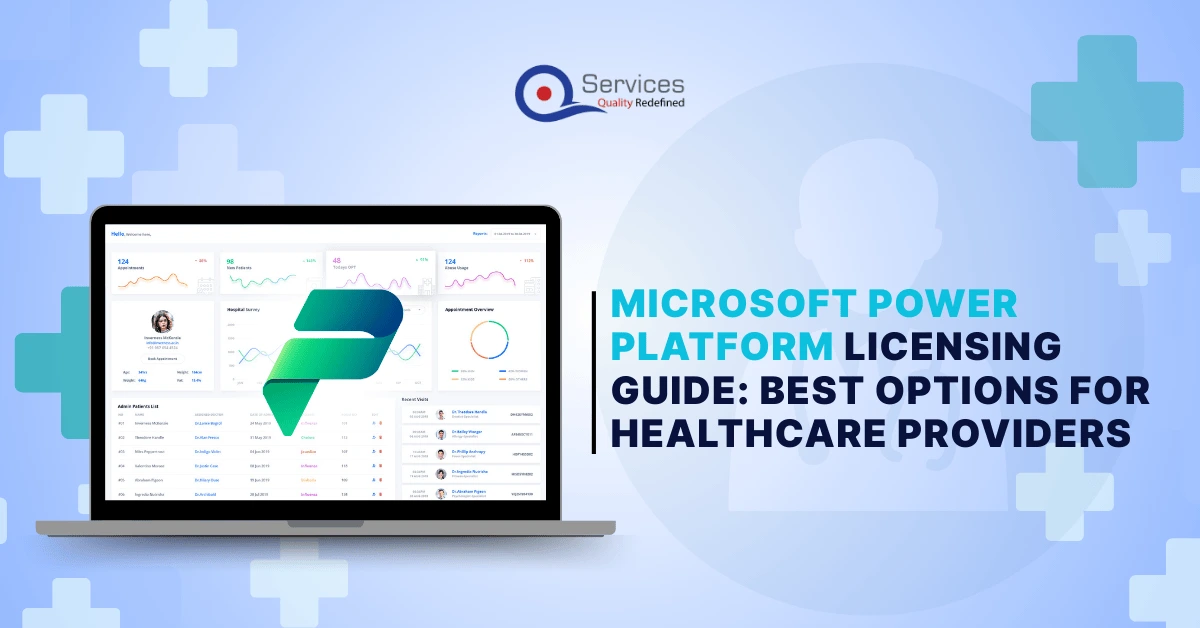
Rewards
.





CANADA
55 Village Center Place, Suite 307 Bldg 4287,
Mississauga ON L4Z 1V9, Canada
Certified Members:
.



Home » AI Trends Shaping Business in 2025—What Leaders Should Know: A Step-by-Step Guide

AI is no longer a promise of tomorrow—it’s reshaping industries today. Companies that fail to adapt may quickly find themselves outpaced by the competition.
So, what’s your plan to make AI an integral part of your business growth?
This guide takes a practical approach to help business leaders understand the trends shaping AI in 2025 and how to integrate them into their long-term goals. With AI driving innovation across industries, the question isn’t if you’ll adopt it—it’s how you’ll do it right.
By the end of this guide, you’ll have a clear understanding of how AI in business strategy can empower your organization to adapt, innovate, and thrive in the dynamic landscape of 2025.
Artificial intelligence isn’t just limited to tech companies only. In 2025, AI business trends will be essential to every possible industry. Whether you’re in retail, oil and gas, or manufacturing, AI will play a major role in shaping your business.
Here’s what you can expect from AI in 2025 and Beyond
AI is making decision-making smarter and faster. In 2025, AI business trends will see leaders leveraging AI to analyze large amount of data in real time and make informed decisions on the spot.
Gone are the days of generic customer service. AI is helping businesses create personalized experiences for their customers. From tailored marketing campaigns to one-on-one virtual assistants, AI will help companies create deeper connections with their audience.
One of the best things about AI is how it can handle repetitive tasks. Businesses are already using AI to automate simple work like answering FAQs and sorting through customer inquiries, allowing businesses to operate more efficiently and free up resources for more complex challenges.
By 2025, these artificial intelligence trends in business won’t just be nice-to-haves—they’ll be essential. If you’re not already thinking about how to incorporate AI into your strategy, now is the time to start.
Get free Consultation and let us know your project idea to turn into an amazing digital product.
Incorporating AI into your business means ensuring that AI solutions directly support your strategic goals. At first evaluate your business objectives and ask: Where can AI deliver real value to my business? The more clearly defined your objectives, the easier it will be to align your AI strategy with them.
For instance, if your objective is to drive revenue through enhanced customer engagement, AI-powered personalization tools can help you to deliver the right offers to the right people at the right time.
Here’s how you can begin:
Whether you’re looking to automate processes, uncover insights, or predict customer behavior, align your goals with the most appropriate AI solutions.
Find out which parts of your business want the most from AI—whether it’s improving efficiency in operations, enhancing marketing strategies, or offering more personalized services.
The goal is to make sure that AI isn’t a buzzword in your strategy—it should be a valuable tool that serves specific business purposes. Learning how to integrate AI into your business with a clear vision, ensuring that your AI investments are strategic as well as impactful.
Selecting the right AI business applications can make or break your AI strategy. Choosing the right tools will certainly add measurable value to your business. That’s where AI integration in business becomes important.
As a leader, consider what type of AI solution your company needs. Do you need automated chatbots to interact with customers, or perhaps machine learning algorithms to analyze data and predict trends? Your business size and needs will determine the best AI tools to integrate into your operations.
Do you need AI for customer support or predictive analytics? Clarify your objectives so you can pick tools that meet those goals.
Search into the platforms like Microsoft Azure AI, IBM Watson, and Google AI, which provide businesses with right tools to effortlessly integrate AI.
These platforms cater all sizes of businesses to offer personalized solutions to meet your specific needs.
With the right AI applications, you’ll ensure an effortless integration and set your company on the path to long-term success.
Now that you are aware of the power of AI, it’s time to think about implementing it to your business. AI business integration helps businesses work smarter by using technology to improve daily tasks. Here’s how to apply AI in different areas:
By integrating AI into business, tools like chatbots can provide quick, efficient responses, while personalization engines can suggest services or products based on what their customer has bought or viewed before.
AI enables smarter marketing strategies. When you integrate AI into business, you get insights that can help you identify trends, understand customer behaviors, and deliver more effective, targeted campaigns that connect with your audience.
With AI integration to businesses, you can automate your routine tedious tasks that take up your precious time. AI can be used to handle tasks such as data entry, scheduling, and logistics management, leaving your team free to focus on more important work.
There’s no doubt about it—AI is here to stay. But adopting it comes with a few roadblocks. If you’re wondering how to make AI for business strategy work, check out these tips.
AI is powerful, but if your team doesn’t know how to use it, you won’t get very far.
Invest in some training programs to teach your team how to work with AI model. This way, you’ll have the skills in-house to make the most of AI.
AI is all about data which means that privacy is a big concern when it comes to AI adoption.
Protect your data with strong security systems and stay up-to-date with privacy regulations.
AI can feel like a big investment, and many businesses get stuck here. But don’t let that stop you.
Test things out with a few small-scale AI projects. Once you see how AI adds value, you can scale up your AI and business strategy gradually.
AI is changing how businesses make decisions. By including AI business strategy in your approach, you give your company the ability to make better decisions based on real data. AI works by processing huge amount of information and giving clear insights that help guide your choices.
When you integrate AI into your decision-making, it allows you to spot trends, optimize customer engagement, and make decisions that help your business run more efficiently. AI helps you make quick decisions based on data, whether it’s for predicting future market changes or improving your customer service.
When you follow an AI business strategy, it ensures that your choices are backed by the latest data that can make your decisions lead to growth.
By integrating AI into your daily business processes, you set up your company to thrive in today’s fast-moving market.
AI is not a one-time thing. It’s here to stay, and businesses that succeed are the ones that keep adapting AI with time. But how do you keep pace with AI, specially when it’s constantly changing? The answer is continuous learning. Your team needs to stay updated and ready to apply AI in new ways as the technology grows.
How can you make sure your business stays ahead of the AI curve? By creating a workplace where AI learning and improvement are a regular part of your routine.
The key to always become competitive is keeping your team educated about the latest AI trends and developments. Regular training sessions help your employees understand new AI strategies and apply them to their work.
AI needs constant attention. Regular feedback from your team lets you tweak and improve AI applications, making sure your business is always getting the most out of the technology.

AI is evolving, and fast. If you want to keep up, you need to look ahead and prepare for the next big thing. In this step, we’re focused on getting your business ready for the exciting AI breakthroughs that are just around the corner.
We’re not talking about AI that’s here today—we’re talking about quantum computing and deep learning, which are already showing signs of shaking things up. Imagine having the ability to solve the most complex problems in no time at all. Are you thinking about how your business will take advantage of this?
Take some time to explore the cutting-edge technologies that are on the rise, like quantum computing. This stuff might sound futuristic, but it’s coming sooner than you think. Make sure you’re aware of how it could impact your business.
AI will affect different industries in distinct ways. In healthcare, we’re looking at more personalized treatment. Finance is seeing several changes in how transactions are managed with AI. Logistics is becoming more efficient with AI optimizing almost everything from inventory to shipping. So, how do you anticipate AI will impact your industry?
AI is changing everything, and the clock is ticking. To remain competitive, you need to start planning now for how AI will change your business operations moving forward.
AI is no longer a futuristic concept—it’s happening right now, and businesses that get on board early will reap the rewards. If you’re not sure where to begin, don’t worry. Connecting with AI experts or software providers can help you integrate these technologies into your business in a way that gives you an edge over competitors. Start today and be ready for the future.

Microsoft Power Platform consists of several key components, including Power Automate, Power BI, Power Apps, and more. With these tools, organizations can meet the growing demands of customers and enhance operations.

Azure compliance offerings stand out in this ecosystem as a robust building block for millions of developers and IT professionals. Its comprehensive infrastructure provides the necessary tools and frameworks that enable financial institutions to address complicated security compliance challenges with ease.

Microsoft Cloud for Healthcare helps medical organizations move to the healthcare cloud, making their work faster, safer, and more reliable. But moving to the cloud isn’t as simple as flipping a switch.
The key trends shaping the future include generative AI, hyperautomation, AI-driven personalization, and enhanced cybersecurity. These trends are set to revolutionize how businesses operate.
Generative AI is transforming areas such as content creation, product design, innovative marketing strategies, and streamlining repetitive tasks, helping businesses stay ahead of the curve.
AI-powered chatbots and virtual assistants offer 24/7 support, efficiently handling customer inquiries and improving the overall customer service experience.
Small businesses can harness AI for automating marketing processes, gaining customer insights, and optimizing operations to increase efficiency without significant investment.
AI is increasingly used in fraud detection, risk management, customer service, and delivering personalized financial advice, reshaping the financial landscape.
AI can streamline recruitment by analyzing resumes, identifying top candidates, and suggesting personalized development plans for employees, improving overall HR processes.
Ethical concerns surrounding AI include ensuring fairness, transparency, and accountability, as well as addressing any potential biases in algorithms and decision-making processes.
AI helps optimize energy usage, track environmental changes, and support sustainable practices, contributing to more eco-friendly business operations.
Recent advancements in natural language processing, computer vision, and reinforcement learning are pushing the boundaries of what AI can achieve, bringing new possibilities to industries worldwide.
SMEs should evaluate factors such as cost, scalability, and the availability of skilled personnel to ensure that AI adoption aligns with their business goals.
Schedule a Customized Consultation. Shape Your Azure Roadmap with Expert Guidance and Strategies Tailored to Your Business Needs.
.





55 Village Center Place, Suite 307 Bldg 4287,
Mississauga ON L4Z 1V9, Canada
.




Founder and CEO

Chief Sales Officer

🎉 Thank you for your feedback! We appreciate it. 🙌